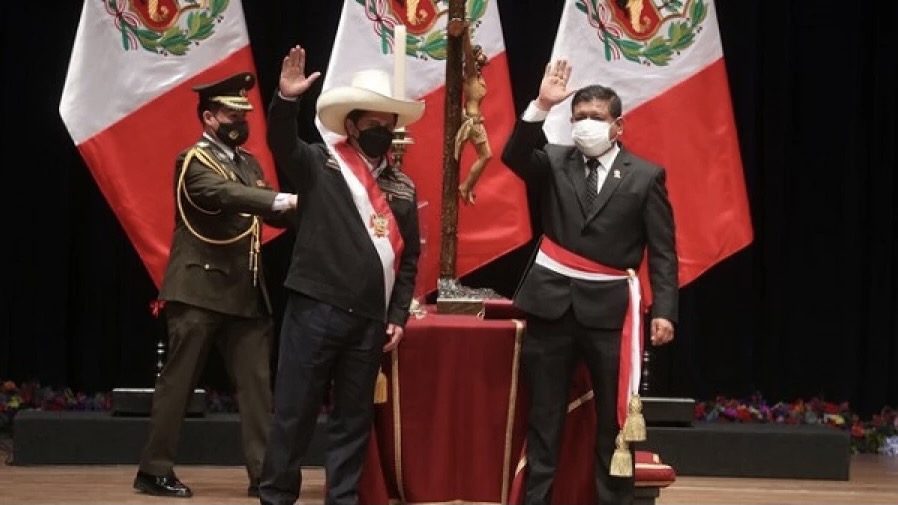The socialist government of President Pedro Castillo in Peru suffered another blow this week. On November 8, defense minister Walter Ayala resigned from his position following a complaint of alleged interference in promotions in the Armed Forces against him. Ayala is Castillo’s tenth minister who had been forced to resign due to a defamation campaign by right-wing forces.
“I place my position at the disposal of the President of the Republic and the Supreme Chief of the Armed Forces, thanking my country and fulfilling my duty to the homeland. Do not use pretexts against democracy,” Ayala tweeted on Monday night.
Last week, on November 6, former army commander general José Vizcarra Álvarez, retired by the government in recent days, in an interview with RRP, claimed that Ayala and the secretary general of the presidency, Bruno Pacheco asked him to irregularly promote colonels Ciro Bocanegra Loayza and Carlos Sánchez Cahuancama to brigadier generals. Vizcarra said that he refused the proposed appointments because both Bocanegra and Sánchez did not meet the required qualifications. He added that his departure from the leadership of the military institution was due to friction. The former commander general of the Air Force, Jorge Luis Chaparro, who was also retired by the government along with Vizcarra, on November 8, accused Ayala of pressurizing him for similar favors.
Ayala denied the allegations and stated that neither he nor any other government official had personal interests in any specific military appointment. He announced that he decided to step down from office so as to prevent further political conflict and defuse a potential scandal that could affect the presidency.
Following the statements of the removed commanders, several opposition legislators announced their intention to present a motion of censure against Ayala, while others began attacking the head of state.
Right-wing attacks destabilize Castillo’s cabinet
Since the inauguration of the progressive government on July 28, the right-wing forces in the country have been constantly attacking it politically, through the media and judicially.
On August 17, former foreign minister Héctor Béjar was forced to resign due to an intense defamation campaign against him in the mass media. On August 28, the officials of the Prosecutor’s Office and the Peruvian National Police raided six premises of the ruling Free Peru party and the house of its founder and secretary general, Vladimir Cerrón, as a part of the investigation into an alleged corruption and money laundering case.
In September, various right-wing politicians demanded to replace former prime minister Guido Bellido for supporting fellow ministers in the face of parliamentary censorship and promoting nationalization of the natural gas sector.
In October, Castillo was forced to reshuffle his ministerial cabinet due to the political pressure from the country’s right-wing forces, which dominate the parliament. On October 6, Castillo requested his former prime minister, Guido Bellido, to resign from his position due to the conflicts with the Congress. The same day, he appointed Mirtha Vásquez of left-wing Broad Front party as the country’s new prime minister. Along with Vásquez, he also swore in six other new ministers. The majority of former ministers was facing a motion of censure in the congress.
Earlier this month, on November 3, another target of the right-wing opposition, interior minister Luis Barranzuela resigned after media reports that he hosted a party on Halloween at his home while the government had banned social gatherings because of the coronavirus pandemic. Barranzuela denied it was a party and said it was a work meeting, in which businessman and new energy and mines minister Eduardo González Toro also participated.
On November 4, just hours before the vote on the vote of confidence for Castillo’s new cabinet in the parliament, the president replaced Barranzuela with Avelino Guillen, a former prosecutor. Several right-wing legislators had stated that they would vote against the cabinet if Barranzuela wasn’t dismissed. The Congress of Peru approved the cabinet headed by PM Vásquez with 68 votes in favor, 56 against and one abstention.
The progressive sectors have condemned the right-wing sectors for such maneuvers and denounced that they are aimed at preventing the national government from bringing about social changes in the country.





